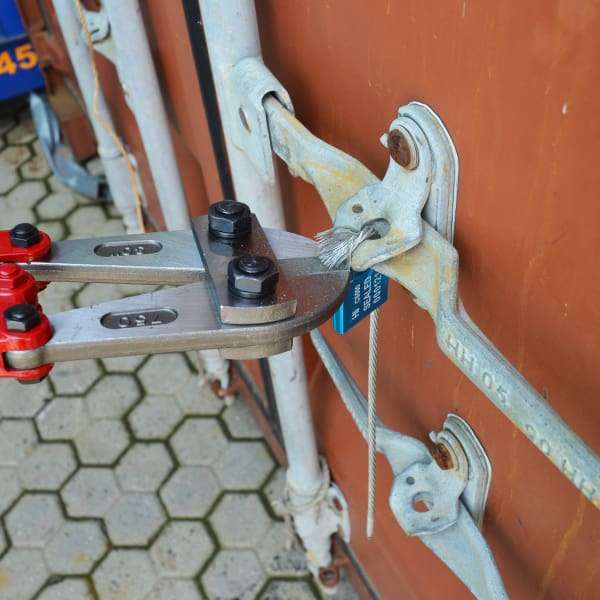Why Wire-Based Seals Are Ideal for High-Security Needs

In logistics, transportation, energy, and industrial operations, securing critical assets is non-negotiable. Whether it’s sealing cargo containers, utility meters, oil tankers, or warehouse doors, one thing is clear: you need a tamper-evident, highly reliable solution that can withstand extreme conditions and prevent unauthorized access.
That’s where wire-based seals—also known as cable seals—come into play.
These robust, flexible security devices are purpose-built for high-security environments where durability and tamper resistance are essential. In this blog, we’ll explore what makes wire-based seals uniquely suited to demanding applications, how they work, and why they are trusted across industries where safety, integrity, and compliance matter most.
What Are Wire-Based Seals?
Wire-based seals (or cable seals) are mechanical security seals that combine a metal locking body with a flexible but strong steel wire cable. Once locked, they cannot be removed without cutting the cable—making any tampering immediately visible.
They are commonly used to seal:
- Shipping containers and railcars
- Fuel tankers and pipelines
- Utility meters and valves
- Warehouses, gates, and restricted zones
These seals are typically made with:
- Galvanized or stainless steel wire
- Aluminum or zinc alloy locking bodies
- Custom numbering, barcodes, or branding for traceability
Wire-based seals may seem simple, but their strength, durability, and tamper-evident features make them indispensable for high-security applications. Whether it’s in transit, storage, or inspection, they offer a reliable layer of protection where trust and traceability matter most.
Key Features That Make Wire-Based Seals Ideal for High-Security Needs
Wire-based seals are engineered with specific features that make them exceptionally suited for high-risk environments—from logistics and banking to defense and customs.
1. High Tensile Strength and Durability
Wire seals are engineered to withstand pulling, cutting, and twisting, making them ideal for high-risk or rough handling environments like shipping yards, construction sites, and remote installations.
Depending on the model, tensile strengths can range from 300 kg to over 1,000 kg, which is more than enough to deter tampering and provide peace of mind.
2. Tamper-Evident by Design
Once the wire is threaded through the locking mechanism and secured, it cannot be removed without visible damage. Any attempt to tamper leaves clear evidence—either in the form of frayed cable, broken lock bodies, or manipulated markings.
This visibility is critical for:
- Customs inspections
- Security audits
- Chain-of-custody documentation
3. Versatility in Application
Wire-based seals are used across sectors because they offer a flexible yet secure fit. The adjustable cable length makes it easy to seal various sizes of openings—everything from small hatches to massive container doors.
Common use cases:
- Aviation: Sealing aircraft compartments and ground support equipment
- Oil & Gas: Securing valves, tanks, and pipes in harsh environments
- Utilities: Meter sealing for electricity, water, and gas systems
- Customs & Border Protection: Container sealing for cross-border shipments
4. Customization and Traceability
Wire seals can be customized with:
- Unique serial numbers or barcodes
- Company logos for brand and security
- Color-coded bodies for easy visual classification
These features support compliance, accountability, and easy recordkeeping throughout the supply chain.
5. Weather and Corrosion Resistance
Built with galvanized or stainless steel, wire-based seals resist corrosion, UV exposure, and extreme temperatures—making them perfect for long-term outdoor use or marine environments.
With a combination of tamper evidence, traceability, and durability, wire-based seals provide a level of protection that high-security operations can depend on—every time.
Industries That Rely on Wire-Based Seals
From safeguarding cash in transit to sealing cargo containers at ports, wire-based seals play a critical role across a wide range of industries. Their strength and tamper-evident design make them essential wherever security and accountability are top priorities.
| Industry | Application | Benefit |
| Logistics & Shipping | Cargo containers, truck trailers | Ensures shipment integrity, simplifies customs clearance |
| Energy & Utilities | Valves, meters, tanks | Prevents theft, tampering, and service abuse |
| Aviation & Airports | Ground equipment, luggage gates | Secures critical systems and baggage handling |
| Chemical & Oil | Pipelines, tankers | Maintains safety, compliance, and prevents leaks |
| Retail & Banking | Cash transit boxes, ATM cassettes | Protects against internal and external theft |
Whether it’s logistics, energy, aviation, or government operations, industries around the world trust wire-based seals to secure assets, deter tampering, and maintain regulatory compliance under the toughest conditions.
How to Choose the Right Wire-Based Seal
When selecting a wire-based seal for your operation, consider the following:
- Tensile Strength Requirements: Higher-risk environments need stronger cables.
- Wire Diameter and Length: Choose based on the size of the application point and flexibility needed.
- Locking Mechanism Type: Some locks offer one-way seals, others allow for minor adjustments before final locking.
- Regulatory Compliance: Especially important for cross-border logistics and high-risk industries.
- Tamper Visibility: Opt for seals with clear indicators of interference or breakage.
Choosing the right wire-based seal isn’t just about fit—it’s about ensuring the highest level of security, compliance, and confidence in every shipment or operation.
Conclusion
When it comes to high-security applications, not all seals are created equal. Wire-based seals stand out for their strength, durability, and tamper-evidence—qualities that are non-negotiable when protecting valuable assets and maintaining operational integrity.
Whether you’re securing shipping containers, utility assets, or hazardous materials, a wire rope seal offers a level of security that plastic or snap-on seals simply can’t match.
Surelock, a trusted name in industrial sealing solutions, offers a wide range of wire rope seal options designed to meet the highest standards of performance, reliability, and compliance. Built with precision engineering and backed by industry expertise, SureLock seals help organizations protect what matters most—from the warehouse to the border and beyond.
With SureLock, high security isn’t just a feature—it’s a standard.



